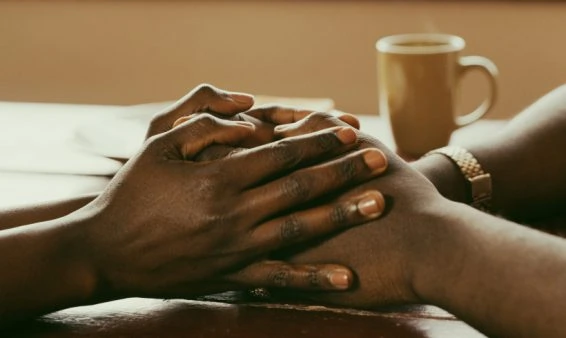Your Genesys Blog Subscription has been confirmed!
Please add genesys@email.genesys.com to your safe sender list to ensure you receive the weekly blog notifications.
Subscribe to our free newsletter and get blog updates in your inbox
Don't Show This Again.

The discomfort you’re feeling might be grief. The pang in your stomach. The ache in your chest. The tension in your body. The mental and emotional exhaustion. All or any of it could be physical manifestations of grief — what happens after a loss.
The feeling of grief is almost impossible to explain to someone who hasn’t experienced the sting of loss. Grief is the acute pain that accompanies loss. But grief isn’t limited to death. I often characterize grief as the process of learning how to live after significant loss. The key word is process.
When a loss occurs, emotional responses like grief are triggered. These include:
There are varying opinions about how someone should grieve, and for how long. The truth is: The grief process differs from person to person. As does the way people choose to manage their grief.
Some pour themselves into work, tasks and being busy. Others might retreat or take a leave of absence. There’s no one way — or right way to grieve. But after suffering a loss, it’s important to consider how you’re feeling, recognize that whatever you feel is valid, and to seek the support and resources needed to process those emotions.
Over the past few years, I’ve gotten to know grief intimately.
First it was my husband, who passed away at a young age from cancer. Shortly thereafter, I lost my grandmother who raised me. Next, it was the collective grief we all experienced due to the COVID-19 pandemic and televised racial violence. A few months ago, I lost another close family member due to a tragic incident.
At one time or another, we all must go through the grieving process. After a loss occurs, I find that many people are shocked and confused to learn that they’re not experiencing the five stages of grief in a neat textbook-like fashion.
The assumption is you first feel denial, then anger, then move on to bargaining, perhaps depression. And everyone certainly wants to reach acceptance. The hard truth is that grief is often experienced as a cycle. We can flow in and out of stages in no particular order. And then the cycle could start all over again.
In conversations with other grievers, what seems to be the most jarring is when one experiences feelings of anger or depression weeks, months or even years after accepting the loss.
For me, I’ve learned to live with grief. But I’ve also learned that it’s possible to thrive after loss.
In honor of National Grief Awareness Day, here are a few things I’d like to share with those who might be in a season of grief.
No matter where you are in your grief process, I am holding space for you today.
Subscribe to our free newsletter and get blog updates in your inbox.